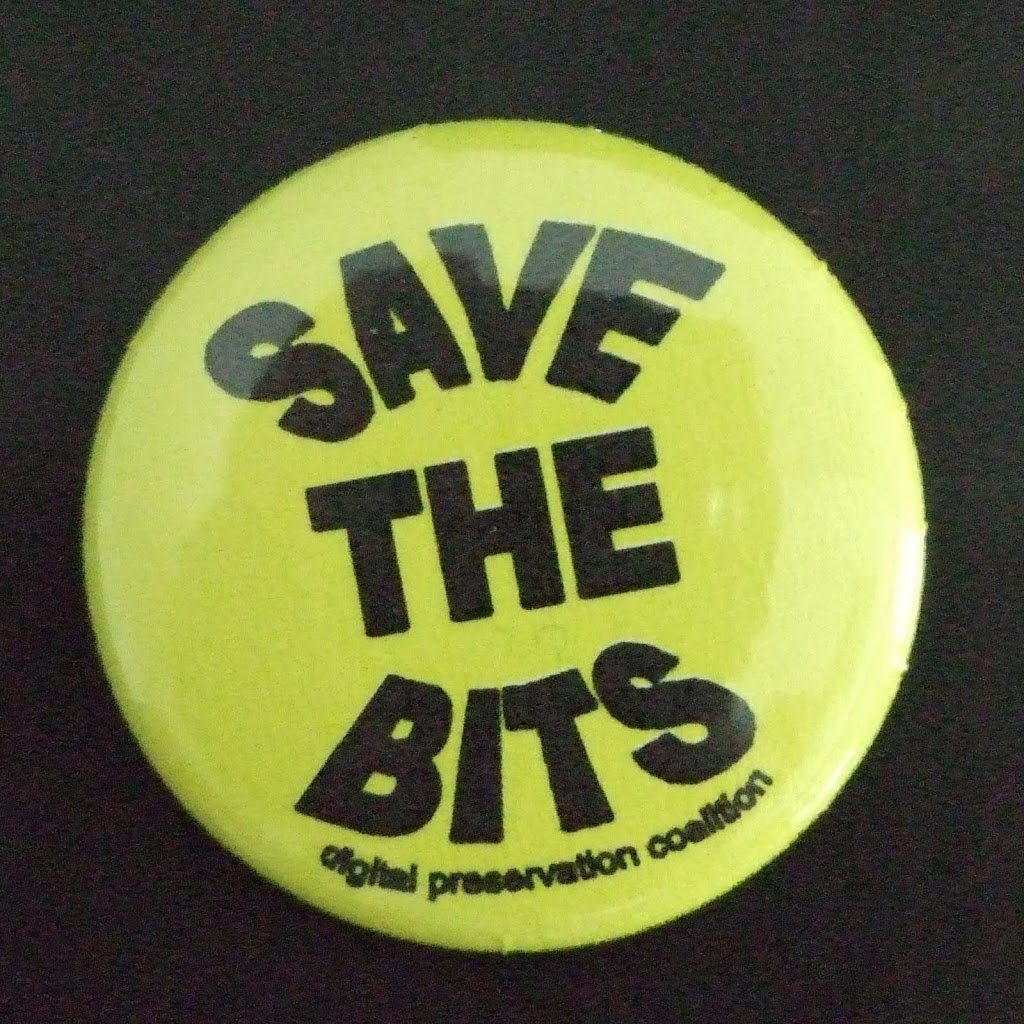Last Friday I went along to the DPC briefing Preserving Digital Sound and Vision. I was particularly interested in the event because of digital video files currently held on DVD media at the Bodleian.
After arriving at the British Library and collecting my very funky Save the Bits DPC badge I sat down to listen to a packed programme of speakers. The morning talks gave an overview of issues associated with preserving audio-visual resources. We began with Nicky Whitsed from the Open University who spoke about the nature of the problem of preserving audio-visual content; a particularly pertinent issue for the OU who have 40 years of audio-visual teaching resources to deal with. Richard Ranft then gave a fascinating insight into the history and management of the British Library Sound Archive. He played a speech from Nelson Mandela’s 1964 trial to emphasise the value of audio preservation. Next Stephen Gray from JISC Digital Media spoke about how students are using audio-visual content in their research. He mentioned the difficulties researchers find when citing videos, especially those on YouTube that may disappear at any time! To round off the morning John Zubrycki from BBC R and D spoke about Challenges and Solutions in Broadcast Archives. One of the many interesting facts that he mentioned was that subtitle files originally produced by the BBC for broadcast have been used as a tool for search and retrieval of video content.
After enjoying lunch and the beautiful sunny weather on the British Library terrace we moved onto the afternoon programme based on specific projects and tools. Richard Wright of the BBC spoke about the Presto Centre and the tools it has developed to help with audio-visual preservation. He also spoke about the useful digital preservation tools available online via Presto Space. Sue Allcock and James Alexander then discussed the Outcomes and Lessons learnt from the Access to Video Assets Project at the Open University which makes past video content from the Open University’s courses available to OU staff through a Fedora repository. Like the BBC, discovering subtitle files has allowed the OU to index their audio-visual collections. Finally Simon Dixon from the Centre for Digital Music Queen Mary University spoke about emerging tools for digital sound.
A final wide ranging discussion about collaboration and next steps followed which included discussion about storage as well as ideas for a future event addressing the contexts of audio-visual resources. I left the event with my mind full of new information and lots of pointers for places to look to help me consider the next steps for our digital video collections… watch this space.
-Emma Hancox
